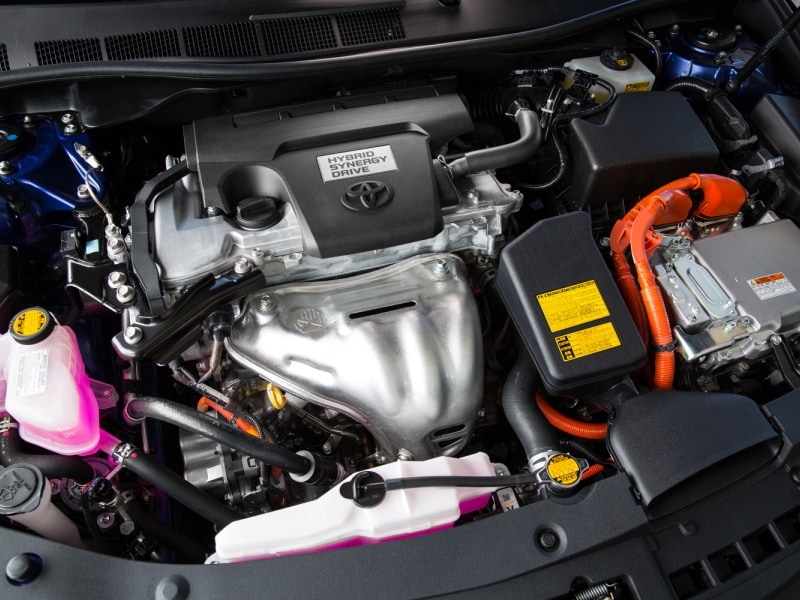Recent Articles
Popular Makes
Body Types
Weird Noises Your Hybrid Makes—And Why

If you’re driving a hybrid, some of the weird noises your hybrid makes may be leaving you wondering what's going on in there. Yes, there is still an internal combustion engine, as well as a conventional suspension system, cooling system, and braking system (regenerative components aside). And, like conventional cars, some weird noises should be attended to rather than drowned out by your Taylor Swift download. After all, when it comes to cars, one thing is absolutely certain. Once your car makes a noise — even if it seemingly goes away — it will do it again at some point. Better to investigate while it’s intermittent and make the repair than wait for it to become consistent and take a few other components down with it.
All Noises Aren't Bad—There Are Good Noises Too
Hybrids and electric cars under propulsion can be so quiet the National Highway Traffic Safety Administration has issued a proposal requiring them to come equipped with a device to make them more audible to pedestrians, especially visually impaired individuals. According to the agency’s statistics, a hybrid vehicle in the process of executing a low speed maneuver (making a turn, slowing, stopping, backing up, entering or leaving a parking space, or starting in traffic), is considerably more likely to be involved in a collision with a pedestrian or a cyclist than an internal combustion engine vehicle. Low speed maneuvers (defined as less than 18 miles per hour) are singled out because a vehicle’s tires make enough noise to be aurally discernable above that speed. NHTSA has developed a set of sounds to make these vehicles more audible. If your hybrid makes a noise similar to one of these, all is well.
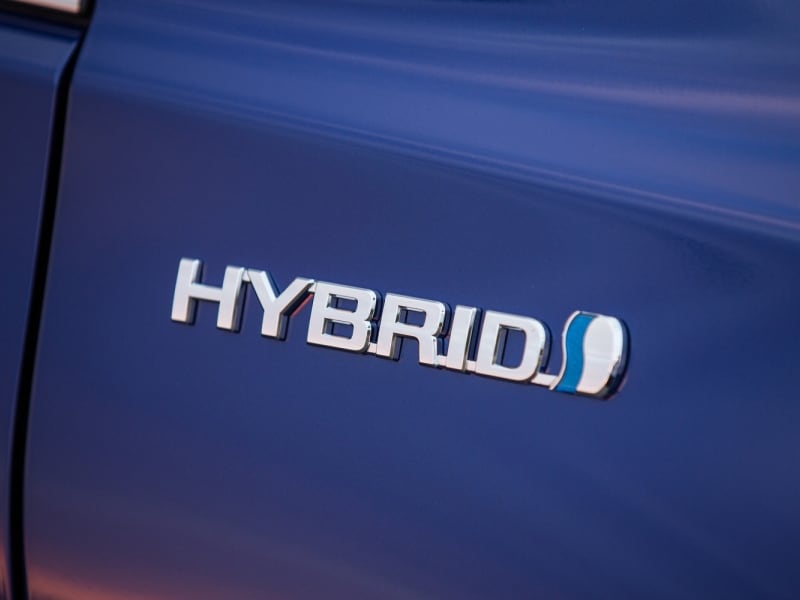
Photo by Toyota
Hybrid Braking System Related Bad Noises
The braking function of your car is one of the few systems relying solely upon friction to do its job. In most cases, automotive engineers seek to eliminate or minimize friction, as it is the enemy of motion—which is also why it works so well for the braking system. Because of friction, components of the braking system wear more frequently and more rapidly than others. Further, the braking system is more prone to generating audible sounds when problems exist. If you hear clunking noises when braking, the sound could be traced to damaged or missing components, or a brake caliper could be loose or improperly mounted. Squealing noises can often be traced to dirt on the rotors, pads, drums or shoes. Other squeals indicate worn brake pads and shoes, previously overheated pads, incorrectly mounted calipers, or the pads could simply be worn out and you’re hearing their wear indicators.
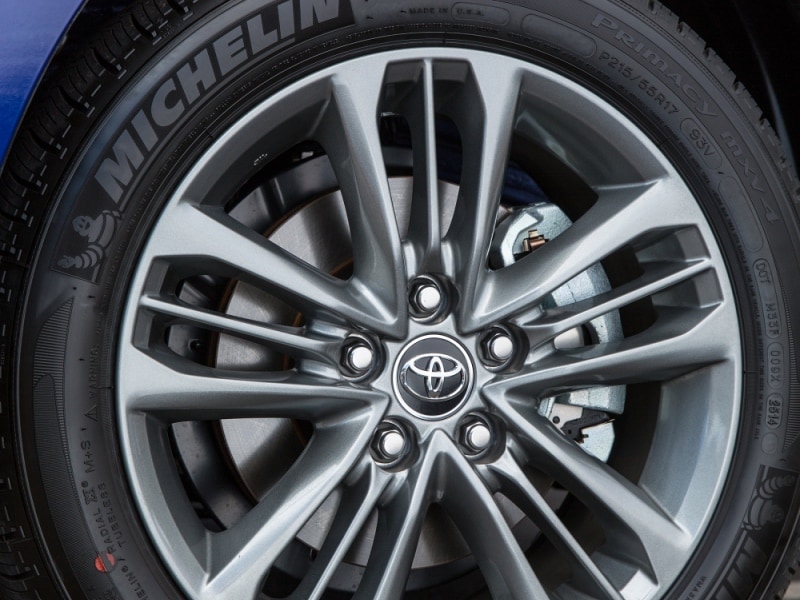
Hybrid Braking System Related Good Noises
Most hybrids use regenerative braking systems to create electricity and recharge the batteries whenever braking is applied. These typically work by causing the car’s electric motor to run backwards, which makes it generate electricity. This slows the car in much the same fashion as downshifting a transmission uses the engine to slow a car. Except, in this case, running the electric motor backwards also generates electricity, which is stored in the battery pack to provide energy the next time the electric motor is called upon to propel the vehicle. A hybrid’s brakes also incorporate the components of a conventional braking system, so all the noises listed previously could potentially emanate from one of these systems. However, regenerative braking systems can also produce a slight whining noise when they are applied. This is because you can sometimes hear the electric motor running backwards as the system functions. This is perfectly normal.
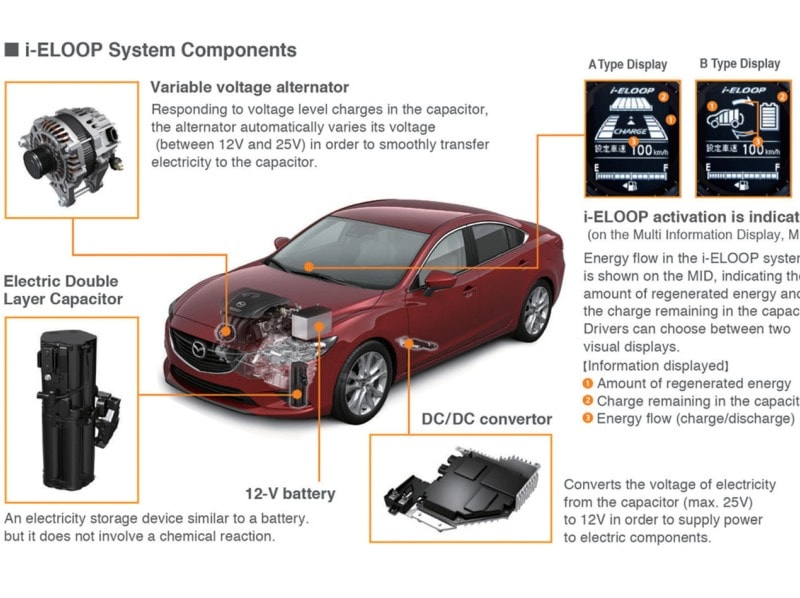
Hybrid Manual Transmission Related Bad Noises
While most hybrids use continuously variable transmissions, a number of models do employ conventional automatic transmissions, and one (the Honda CR-Z) comes fitted with a manual transmission. In the Honda, if you hear grinding while shifting gears, there is a possibility the shift linkage needs adjustment, the clutch needs adjustment, or the clutch is worn and needs servicing. The problem could also be traced to a low level of the hydraulic fluid a clutch needs to operate properly. If you hear a chattering noise while the transmission is in neutral, the problem could be traced to a worn reverse idler gear, worn bearings, or worn gears. A mild chattering noise while the engine is idling and the transmission is in neutral, which goes away when you step on the clutch, could be the clutch throwout bearing. Worn manual transmission internal components can cause grinding noises during gear changes as well.
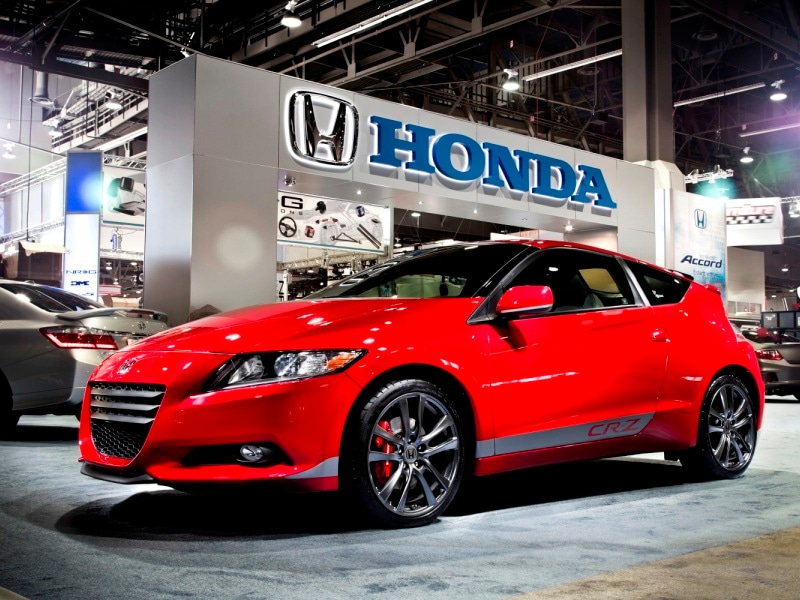
Hybrid Automatic Transmission Related Bad Noises
In normal operation, an automatic transmission should be very quiet and smooth. A constant whining noise from the transmission, along with a slipping of gears could be low transmission fluid. Checking the level first and adding it if needed can save you a lot of time and expense. If you hear a humming noise, it could be a malfunctioning transmission pump, or pump shaft. Buzzing noises typically signal a problem with the torque converter. A loud clunking noise when the transmission is shifted from park generally indicates torque converter mount problems. A heavy clunking sound when shifting from neutral to reverse may be an indication of a problem with the transmission’s cross member mount, particularly if it’s accompanied by vibration. Rumbling, growling, or metal upon metal noises are generally indicative of problems with the gears inside the transmission. A critical component, transmission problems should be addressed as quickly as possible.
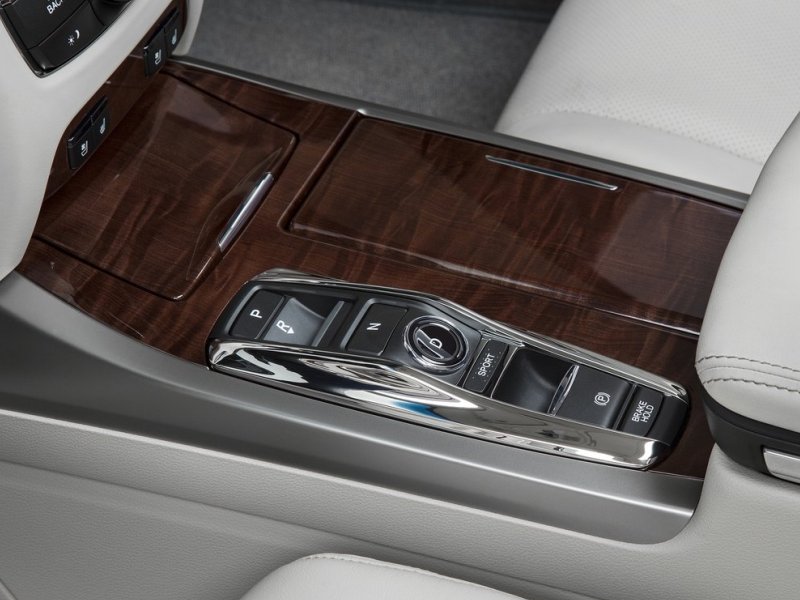
Hybrid Continuously Variable Transmission Related Good Noises
Most hybrid models use continuously variable transmissions (CVTs). Rather than gears as in a conventional transmission, CVTs contain two pulleys and a metal “belt”. The pulleys are engineered to vary in size as the speed of the vehicle increases or decreases. This simulates the changing of gear ratios, but it does so gradually in order to enable the engine to continually work at peak efficiency to maximize fuel economy. Because of the way the CVT works, drivers accustomed to hearing gear changes as their car accelerates may find the engine noise caused by the functioning of the CVT to be disconcerting. An engine with a CVT revs to the required rpm when the throttle is applied and holds it until the desired speed is reached. This could make you think your engine is running too hard, or your transmission is broken because you don’t hear gear changes as you accelerate.
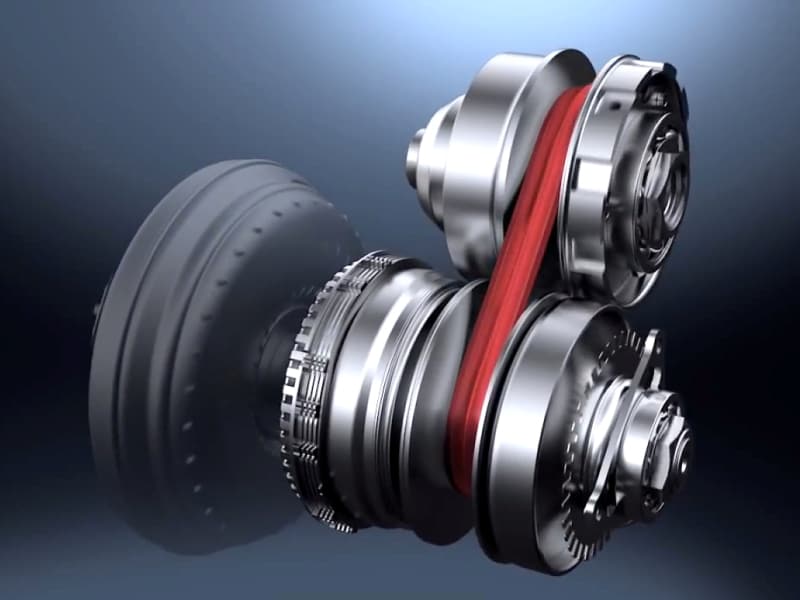
Hybrid Gasoline Engine Related Bad Noises
Many of these are the same as in conventional automobiles. After all, aside from generating electricity to be stored in the battery pack, the gasoline engine functions largely the same in a hybrid as it does in a non-hybrid automobile. At start up, does the engine spin up readily and settle into a smooth idle, or do you hear coughing, sputtering, or other strange noises? These could be an indication of problems with the ignition system. Other causes of this behavior include a dirty air filter, failing spark plugs or spark plug wires, a clogged fuel filter or catalytic converter, or water in your gasoline. Squeaking and squealing noises (particularly at idle) could be indicative of loose, worn, or slipping drive belts. Another culprit could be loose, or poorly aligned drive belt pulleys. One thing you don’t have to worry about is an alternator, as hybrids typically don’t have them.
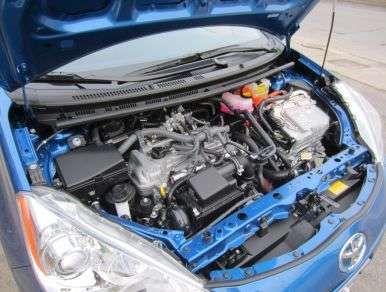
More Hybrid Gasoline Engine Related Bad Noises
If you hear knocking or clattering sounds, the problem can typically be traced to a low gasoline octane rating, a clogged air filter, or improper engine timing. Clicking noises can be attributed to out of adjustment valves, a lack of engine oil, or low oil pressure. Other sources of clicking sounds include collapsed valve lifters, stuck valves, or sludge in the engine’s lubrication system. This prevents the oil from circulating freely. Hissing sounds can be attributed to a failing cooling system, which causes overheating and steam. Disconnected or leaking vacuum lines and devices can also cause hissing noises. Ancillary engine components make whirring noises when they have problems. These include a failing water pump, power steering pump, or air conditioning compressor. Today’s extremely high-pressure fuel injection systems can sometimes rattle when the engine is running cold, but this usually isn’t a problem.
